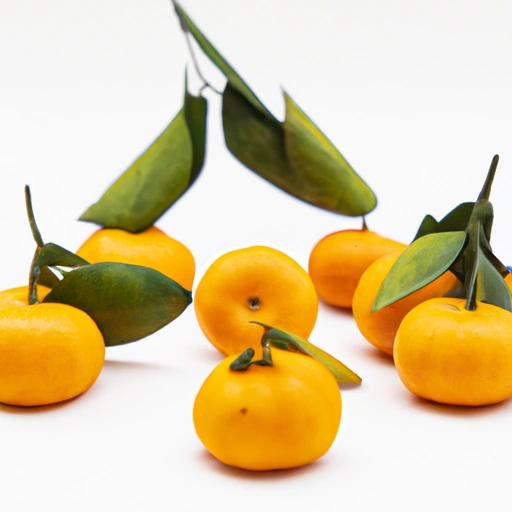Mandarin Orange
Description

The mandarin orange, also known as the mandarine, is a small citrus fruit with a sweet flavor and easy-to-peel skin. A popular ingredient in various culinary traditions, it is smaller and less rounded than the common orange. It's a versatile fruit that can be used in both sweet and savory dishes, consumed fresh or incorporated into recipes.
Common uses
Mandarin oranges are commonly used as a fresh snack, in salads, desserts, and to add a sweet citrus flavor to dishes. They are also processed into juices, jellies, and preserves. Additionally, the zest and peel are utilized in baking and cooking for their fragrant oils.
Nutritional value
Calories
A medium-sized mandarin orange (about 88 grams or 3.1 ounces) contains approximately 47 calories.
Protein
It provides about 0.7 grams (0.02 ounces) of protein.
Fat
Mandarin oranges are low in fat, with a medium fruit containing only 0.3 grams (0.01 ounces).
Carbohydrates
They are mostly composed of carbohydrates, primarily sugars, with a total of 12 grams (0.42 ounces) per medium-sized fruit.
Vitamins
Mandarins are an excellent source of Vitamin C and also provide Vitamin A and several B vitamins.
Minerals
Mandarins contain minerals such as potassium, calcium, and magnesium.
Health benefits
Mandarin oranges contribute to immune system support, skin health, and may aid in reducing the risk of certain diseases due to their high vitamin C content. The dietary fiber in mandarins helps with digestion and can assist in controlling blood sugar levels.
Potential risks
Potential risks include allergies for some individuals. Excessive consumption can lead to digestive issues due to the high fiber and sugar content. As with all fruits, mandarins should be consumed in moderation as part of a balanced diet.
Common recipes
Recipes using mandarin oranges range from mandarin orange salads, cakes, and tarts to savory stir-fries and sauces. They are also a popular addition to smoothies and cocktails.
Cooking methods
Mandarins can be eaten raw, candied, or cooked. They are often used as a garnish, and their juice is widely used in marinades and dressings.
Pairing with other ingredients
Mandarins pair well with other fruits, poultry, seafood, green salads, and dark chocolate.
Summary
Mandarin oranges are a globally loved citrus fruit, integral to various culinary practices for their sweet taste, nutritional benefits, and cultural importance. Available fresh, canned, or as a flavoring ingredient, mandarins offer versatility in kitchen applications around the world.